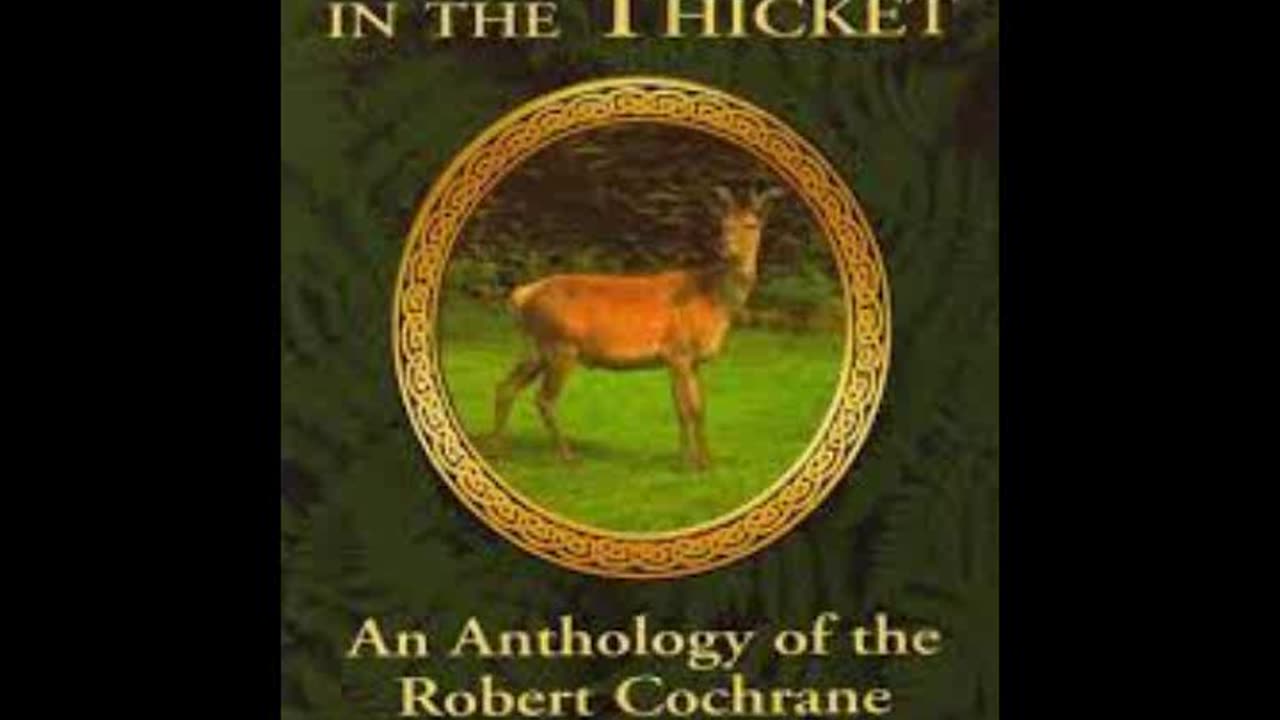Premium Only Content

Robert Cochrane Witch: The Life and Legacy of a Pivotal Figure in Modern Witchcraft
https://solitarypaganism.com/witches/robert-cochrane-witch-the-life-and-legacy-of-a-pivotal-figure-in-modern-witchcraft/
Robert Cochrane was a significant figure in the revival of witchcraft in Britain during the 1950s and 60s. He was born in 1931 and grew up in London. Cochrane was a practitioner of traditional witchcraft, which he believed was rooted in pre-Christian beliefs and practices. He founded the Clan of Tubal Cain, a coven that focused on the worship of the Horned God and the Mother Goddess.
Cochrane’s teachings were influenced by his experiences in the military and his interest in folklore and mythology. He believed that witchcraft was a way of connecting with the natural world and the spirits that inhabit it. Cochrane emphasised the importance of personal experience and intuition in witchcraft, and he encouraged his followers to develop their own magical practices and rituals.
Despite his influence on the modern witchcraft movement, Cochrane’s life and teachings remain shrouded in mystery. He died in 1966, and many of his writings and teachings were lost or destroyed. Nevertheless, his legacy lives on in the Clan of Tubal Cain and in the wider witchcraft community, where his ideas and practices continue to inspire and inform modern witches.
Early Life of Robert Cochrane
Robert Cochrane was born on January 26, 1931, in West London, England. His birth name was Roy Bowers, but he later changed it to Robert Cochrane. Not much is known about his childhood, but it is believed that he was raised in a working-class family.
Cochrane left school at the age of 14 and began working as an apprentice in a metal foundry. He later became a toolmaker and worked in various factories throughout his life. However, he always had an interest in the occult and witchcraft, which he pursued in his free time.
In the 1950s, Cochrane joined a coven led by a woman named “Old Dorothy.” It was through this coven that he was introduced to traditional witchcraft, which would later become the foundation of his own practice.
Cochrane’s early experiences with witchcraft were heavily influenced by his time in the coven. He learned about the importance of the seasons, the cycles of the moon, and the use of herbs and other natural materials in magical practices.
Despite his interest in witchcraft, Cochrane remained relatively unknown until the 1960s when he began to gain a following. He founded his own coven, the Clan of Tubal Cain, which was based on traditional witchcraft practices. The coven was named after Tubal Cain, a biblical figure who was associated with metalworking and craftsmanship.
Overall, Cochrane’s early life was marked by a fascination with the occult and a desire to learn more about traditional witchcraft. His experiences in the metalworking industry also influenced his beliefs and practices, which were heavily focused on the use of natural materials and the importance of craftsmanship.
-
 9:21
9:21
asolitarypagan.com
1 year agoMaking Herbal Salves
1.79K -
 1:40:08
1:40:08
Precision Rifle Network
1 day agoS4E2 Guns & Grub - Training Vs. Competition
17.8K -
 58:27
58:27
Flyover Conservatives
23 hours agoGarrett Ziegler Breaks Down Special Councilor’s Report on Hunter Biden. Insights for Trump’s Top Picks. | FOC Show
46.3K1 -
 44:54
44:54
Steve-O's Wild Ride! Podcast
12 hours ago $8.27 earnedMark Wahlberg Threatened To Beat Up Jackass Cast Member - Wild Ride #251
100K11 -
 1:13:34
1:13:34
Josh Pate's College Football Show
7 hours ago $1.02 earnedCFB Dynasties & Villains | Marcus Freeman OR Ryan Day | 2025 Sleeper Teams | Cole Cubelic Joins
28.7K -
 1:00:26
1:00:26
The StoneZONE with Roger Stone
5 hours agoSHOCKING NEW TAPE PROVES LBJ KILLED JFK! | The StoneZONE w/ Roger Stone
48.8K18 -
 1:44:33
1:44:33
ObaTheGreat
7 hours agoCrypto vs The World w/ Oba The Great And YaBoySkey
37.8K3 -
 LIVE
LIVE
VOPUSARADIO
2 days agoPOLITI-SHOCK! "COUNTDOWN TO TRUMP" & THE GLOBALISTS BURNING IT ALL DOWN..LITERALLY!
71 watching -
 44:34
44:34
Kimberly Guilfoyle
10 hours agoCountdown to Inauguration Day, Plus California in Crisis, Live with Joel Pollack & Roger Stone | Ep. 189
128K56 -
 1:32:41
1:32:41
Redacted News
9 hours agoBiden's 'SNEAKY' plot to slow down Trump REVEALED | Redacted w Clayton Morris
140K237